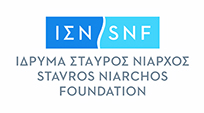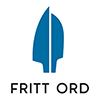
BRUSSELS - Who is going to pay for investigative journalism in the future? Stakeholders will, argue two researchers, who have analysed recent developments. But what about objectivity and credibility?
ou get a phone call. On the other end of the line is a person representing himself as a journalist. Albeit a journalist working for an interest organisation. How do you react?
The situation occurred recently in Brussels, when a part time staff member of the EU lobbywatch-NGO Corporate Europe Observatory CEO contacted EU lobbyists Burson-Marsteller. The CEO-staffer presented himself as a journalist working for CEO. Following the contact between CEO and Burson-Marsteller, the lobbyist organisation EPACA filed a complaint with the European Commission about CEO’s behaviour, which was shortly after turned down. See all the links below.
Now the interesting thing is, whether this is just a one-off situation, or whether it is a significant one pointing towards a new trend.
What I find striking is not so much the petty skirmish between Burson-Marsteller and CEO, but the comment of the key-figure at CEO, Olivier Hoedeman. In a press release he states, that the CEO staff member is “a registered journalist who is employed part-time by CEO for investigative journalistic work”.
Being a journalist myself, I react with goosebumps. Each fibre resists the notion of “investigative journalistic work” pulling the cart of any one-sided interest. Be it as well-intentioned as the lobbywatchers of CEO are in their attempt to map the lobbying structures in the Brussels bubble.
Am I old-fashioned by insisting on editorial independence?
I have seen quite some journalists, who give up their independence and work for an interest organisation. So far I have called that PR or communication jobs. I also know that journalists on a personal level often face identity questions when switching sides. But at the end it is a personal choice.
Now recent research about the future of journalism indicates that what happened with the CEO researcher may well have been a first sign of a new trend. The research has been done by the INSEAD business school near Paris, and looks at the future for funding what is called watchdog journalism.
The authors of the study Mark Hunter and Luk Van Wassenhove argue, that due to lack of money watchdog journalism must be expected more and more to be carried out on behalf of stakeholders. In other words on behalf of interest organisations. Such as COE or indeed Burson-Marsteller?
“Our belief is that investigative journalism will grow outside and in parallel with the (newsmedia) industry, and build a new public, before it is widely reintegrated into the industry’s standards as a central mission. (If we are wrong, and the news industry swiftly rebuilds its watchdog capacity, we will be delighted.),” the two authors write.
Indeed, there are problems with funding quality research journalism, which is one of the reasons why we are building new support structures like Journalismfund.eu. Here we try to safeguarded classical editorial independence through a buffer between donors and recipients of working grants. Other non-profit journalism project also work with buffer-models to prevent interference.
The two researchers however foresee a shift in journalists’ ethics – in other words that’d then help on my goosepimples. They also foresee a shift in readers’ expectations. Instead of offering objectivity, the new interest-paid journalists will offer transparency about their aims.
A very interesting thought indeed.
Hunter and Van Wassenhove analyse the current crisis of many media, its value in terms of money, revenue and power. They observe a growth in stakeholder- and community media during the past years. And most importantly they observe a change in values: Rather than objectivity, transparency now has to sell the news. Stakeholder media target smaller audiences, they are very clear about their aims and they involve their audience by suggesting them to act. Actually there are quite a few examples mentioned, where non-profit journalism which does respect editorial independence from various views, has been rather successful. However the duo states, that few of these usually journalist-driven projects are really successful when it comes to making good revenue.
Analysing a series of examples – from French Le Canard Enchainé to Greenpeace’s research department – Hunter and Van Wassenhove give a list of suggestions on how the various experimenting groups of investigative journalists as well as how the stakeholder media can organise themselves in order to generate better revenues of their work.
Adopting the analysis of the two INSEAD researchers means to give up the highly debated notion of “objective journalism”. Or rather leaving the notion of attempted objectivity – as pure objectivity is a contradiction in terms whenever a reporter chooses one story rather than another.
The argument of Hunter and Van Wassenhove sounds plausible. It even ends with an optimistic foresight pointing towards a new wave of watchdog journalism. Encouraging.
Now let’s assume their prediction of a shift from attempted objectivity as a credibility tool for broad target groups towards transparency as a credibility and narrow target groups comes true. Transparency is indeed an essential tool for credibility, and there is room for improvement also under the current “attempted objectivity” set up. Readers can think for themselves. If they get all the information, they will be able to make their own analysis.
But let’s not pour the attempt of objectivity out with the bathing water. Just as competition in many cases can be a helpful tool, the striving for objectivity is a helpful, no, an essential tool for journalism. When striving for objectivity journalists are obliged to understand a case or a cause from several sides, not just in the way, they wish to. Thus they have to get themselves a complete picture. If this attempt is abandoned already in the research phase because the researcher neglects thoroughness because of his or her stakeholder background, the quality of the understanding and ultimately the quality of the research is at stake.
Hunter & van Wassenhove: Disruptive News Technologies – Stakeholder Media and the Future of Watchdog Journalism Business Models
See also the Euobserver's Watchdog blog and GrænseOverskridende (in Danish).
Written by Brigitte Alfter








